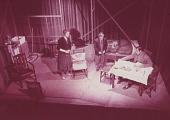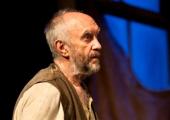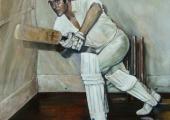The Room: Harold Pinter's 80th birthday celebrated

Pinter's first ever play is revived for one reading only
On 10 October, 2010 Harold Pinter would have turned 80. To celebrate, a group of actors gathered in a room to read The Room, his first play, to an invited audience. Among those present was his widow Antonia Fraser.
The play was introduced by Matthew Lloyd, artistic director of the Actors Centre and its in-house performance space, the Tristan Bates Theatre. Given that The Room was written when Pinter was still making his living as an actor it felt appropriate, he explained, that the celebration was being hosted by a venue where actors are able to hone their craft.





